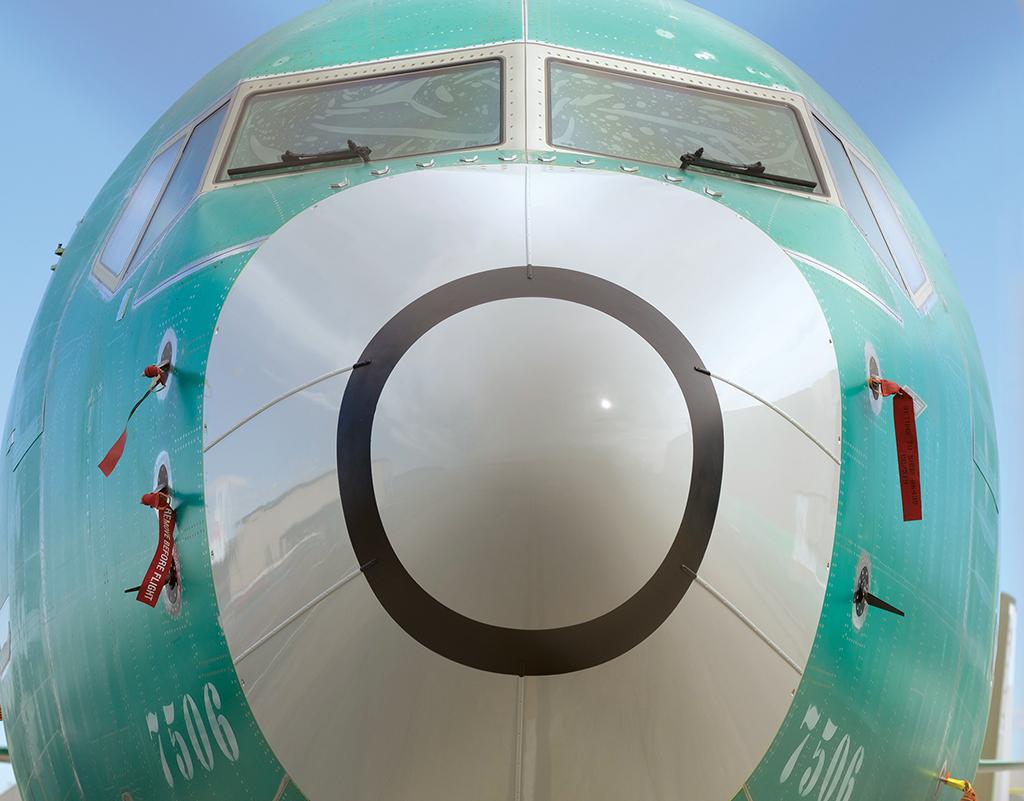
Boeing is inspecting all 737 MAXs it has in storage and adding factory-floor precautions after discovering foreign object debris (FOD) in the fuel tanks of multiple MAXs, the company confirmed late Feb. 18.
Debris was found in “multiple” MAXs during routine maintenance linked with keeping its stored aircraft as close to flight-ready as possible, a source with knowledge of the situation told Aviation Week.
Boeing declined to provide details on how many aircraft were affected or what was found. The issue “led to a robust internal investigation and immediate corrective actions in our production system,” the company said.
Boeing plans to inspect all MAXs that are awaiting delivery to customers, adding yet another step to the return-to-service checklist that includes ensuring the aircraft are in airworthy condition and have updated—yet to be approved—flight control computer software. Despite the added work, Boeing remains confident that its mid-2020 projection for U.S. FAA approval remains on target, the company said.
The FOD issue will mean changes on the production line as well.
“We’ve already held a series of stand down meetings in Renton with teammates on the factory floor to share a new process for stopping FOD,” 737 VP and general manager Mark Jenks wrote in a memo to employees.
Changes to MAX production—which remains suspended—include updated instructions and checklists for work in “fuel cell areas,” and additional inspections before closing fuel cells during production, Jenks wrote.
“The success of this initiative is dependent on you. We need our entire team to make this a priority,” he added.
The MAX FOD issue was first reported by Leeham News.
While not related to the flight control system logic and pilot-training changes being mandated for the MAX in the wake of two fatal accidents within five months, the FOD issue adds to a list of Boeing production quality-control concerns that have generated headlines. Deliveries of the KC-46 tanker to the U.S. Air Force have been halted multiple times due to FOD-related issues that Boeing called “embarrassing.” Findings of FOD in Boeing 787s built in Charleston triggered concerns about that program, which were raised during a mid-2019 U.S. congressional hearing on issues that led to the MAX grounding.
Boeing is still finalizing software, training, and related documentation to win regulatory approval for the MAX’s return. The fleet includes 387 delivered MAXs grounded in mid-March 2019, and some 400 built post-grounding but not handed over to customers. Production was halted last month and will not restart until Boeing has a firm time frame for when the MAX will be approved and deliveries can resume.
The FAA, which is leading the MAX re-certification effort, is not working against a specific time line. U.S. carriers, which will be among the first to get their MAXs back, recently adjusted their schedules to exclude their new Boeing narrowbodies into August and early September.
Separately, Boeing has named Mike Fleming as VP of 737 MAX Return to Service and Global Aviation Safety System. He will report to Stan Deal, Boeing’s top Commercial division executive. Fleming has served as VP of Commercial Services for Boeing Global Services (BGS). Brendan Curran, president of Boeing AvionX, will succeed Fleming at BGS.






Comments
Perhaps if there was any member of the board that had a background in planning, designing, and building complex products they would realize that.
The problems that keep emerging in engineering and manufacturing are fundamental flaws in execution for which there can be no excuse.
"company spokesman Bernard Choi said Boeing is recommending inspections for those airplanes that have been in storage for more than a year. “It’s still undecided if we will inspect the rest” of the delivered MAX fleet, he added. “Obviously, we’ll do what’s right for safety.” "
No, Boeing, it's not obvious at all. Safety seems to be well down the list of priorities.